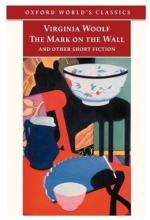|
This section contains 698 words (approx. 3 pages at 300 words per page) |

|
In her efforts to find or create another narrative mode than the one which she felt exercised a tyranny of demands (e.g.
a plot) Woolf suggested that a writer might "Examine for a moment an ordinary mind on an ordinary day." This approach was in direct contrast to the novel in which a protagonist (usually male) has a series of adventures and performs various heroic feats, and it follows Woolfs efforts to write a kind of composite alternative history in which the domestic, the private, and the feminine took precedence. The only character in "The Mark on the Wall" is a person engaged in an act of contemplation. As (presumably) she looks at the mark, the range of her mind expands outward from this initial observation, reaching back into the past when she first noticed it, and then in many directions as association leads to association, thought...|
This section contains 698 words (approx. 3 pages at 300 words per page) |

|



